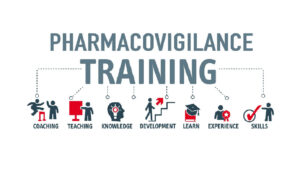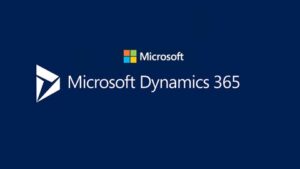Categories Microsoft
MSBI Essentials: A Comprehensive Training Program

Welcome to Proximsoft’s MSBI Training, your gateway to mastering Microsoft Business Intelligence (MSBI). Dive into a comprehensive course that not only equips you with MSBI expertise but also ensures you’re ready to ace interviews and contribute to projects from day one. This course covers SQL Server, SSIS for data integration, SSRS for data visualization, and SSAS for data analysis, providing you with a complete understanding of the MSBI stack.
Why Learn MSBI?
- MSBI provides an integrated solution with tools like SQL Server Integration Services (SSIS), SQL Server Analysis Services (SSAS), and SQL Server Reporting Services (SSRS), streamlining the end-to-end BI process.
- Many organizations use Microsoft technologies, making MSBI a widely adopted solution. Learning MSBI increases your compatibility with businesses relying on Microsoft’s ecosystem.
- SSIS is a powerful ETL (Extract, Transform, Load) tool in MSBI, enabling efficient data integration, transformation, and loading processes.
- Proficiency in MSBI opens up job opportunities in roles such as BI developer, data analyst, and business analyst, as many organizations seek professionals with expertise in Microsoft’s BI tools.
- SBI is suitable for both small-scale and enterprise-level BI solutions, making it versatile for a range of business sizes and complexities.
| Mode of Training | Online live Interactive sessions |
| Duration of the Training | 6 weeks |
| Training duration per day | 60 – 90 min session |
| Software Access | Software will be installed/server access will be provided, whichever is possible |
| Training Materials | Soft copy of the material will be provided during the training |
| Training fee | Depends on the Requirement |
| Resume Preparation | Yes, at the end of the course based on the JD |
| Interview Preparation | Yes, by sharing some FAQ’s |
| Mock calls | Yes, 2 Technical Mock calls |
| Internship Project | Yes |
| Certification | Yes, at the end of the training |
| JOB Assistance | Yes |
| JOB Support | Yes |
| Weekdays | 6AM -2 PM EST & 6-11:30 PM EST (student can pick any 1 hr) |
| Weekends | 8 AM – 12 PM EST (student can pick any 2 hrs) |
What I will learn?
- Core concepts of Microsoft BI
- SQL Server Integration Services (SSIS) for data extraction, transformation, and loading
- SQL Server Reporting Services (SSRS) for creating various types of reports
- SQL Server Analysis Services (SSAS) for analytical modeling, including multidimensional cubes and tabular models
Course Content
SQL Server Integration Services What Is Microsoft BI?
- Core concept – BI
Introduction to SQL Server Integration Services
- Product History
- SSIS Package Architecture Overview
- Development and Management Tools
- Source Control for SSIS Packages
SSIS for DBAs: Using SQL Server Management Studio
- The Import and Export Wizard
- Importing and Exporting Data
- Working with Packages
Business Intelligence Development Studio
- Launching BIDS
- Project templates
- The package designer
- The Toolbox
- Solution Explorer
- The Properties window
- The Variables window
- The SSIS menu
Introduction to Control Flow
- Control Flow Overview
- Precedence Constraints
- The Execute SQL Task
- The Bulk Insert Task
- The File System Task
- The Send Mail Task
Advanced Control Flow
- Containers – grouping and looping
- The Execute Process Task
- The Execute Package Task
- Other Container Tasks
Introduction to Data Flow
- Data Flow Overview
- Data Sources
- Data Destinations
- Data Transformations
- The Copy Column Transformation
- The Derived Column Transformation
- The Data Conversion Transformation
- The Conditional Split Transformation
- The Aggregate Transformation
- The Sort Transformation
- Data Viewers
Variables and Configurations
- Variables Overview
- Variable scope
- SSIS system variables
- Using variables in control flow
- Using variables in data flow
- Configuration Overview
- Configuration options
Debugging, Error Handling and Logging
- SSIS debugging overview
- Breakpoints in SSIS
- SSIS debugging windows
- Control Flow: The On Error event handler
- Data Flow: Error data flow
- Configuring Package Logging
- Built-in log providers
Advanced Data Flow
- Revisiting data sources and destinations
- The Lookup Transformation
- Getting Fuzzy: The Fuzzy Lookup and Fuzzy Grouping Transformations
- The Multicast Transformation
- The Merge and Merge Join Transformations
- The Slowly Changing Dimension Transformation
Extending SSIS through Custom Code
- Introduction to SSIS scripting
- Script in Control flow: The Script Task
- Script in Data flow: The Script Component
SSIS Package Deployment
- Configurations and deployment
- The deployment utility
- Deployment options
SQL Server Analysis Services OLAP Modeling
- Modeling source schemas—stars and snowflakes
- Understanding fact (measures) and cube modeling
Using SSAS in BIDS
- Understanding the development environment
- Creating Data Sources and Data Source Views
- Creating cubes – using Cube Build Wizard
- Refining Dimensions and Measures in BIDS
Intermediate SSAS
- KPIs
- Perspectives
- Translations – cube metadata and currency localization
- Actions – regular, drill-through and reporting
Advanced SSAS
- Using multiple fact tables
- Modeling intermediate fact tables
- Modeling M:M dimensions, Fact (degenerate) dimensions, Role-playing dimensions, write back dimensions
Cube Storage and Aggregation
- Storage topics – basic aggregations, MOLAP
- Advanced Storage Design – MOLAP, ROLAP, HOLAP
- Partitions – relational and Analysis Services partitions
- Customizing Aggregation Design – Processing Design
- Rapidly changing dimensions / ROLAP dimensions
- Cube processing options
SQL Server Reporting Services
- Tour of Features
- Reporting Services Architecture
- Reporting Services Terminology
- Reporting Services Editions
Creating Reports
- Deconstructing Reporting Services
- Shared Data Sources
- Creating Reports from Scratch
Calculations and Formatting
- Creating Expressions
- Using the Global Collections
- Formatting Items
- Conditional Formatting
Grouping and Sorting
- Creating Groups
- Calculating Totals and Percentages
- Interactive Sorting
- Creating Drill-Down Reports
Report Parameters
- Creating Report Parameters
- Creating Drop-Down Parameters
- Multi-Valued Parameters
- Debugging Parameter Issues
Creating Matrix Reports and Charts
- Creating a Basic Matrix Report
- Matrix Subtotals
- Creating a Basic Chart
- Exploring the Charting Possibilities
Managing Reporting Services
- Deploying Reports and Data Sources
- Exporting Reports and Printing
- Using the Web-Based Report Manager
Reporting Services Security
- Two Parts to Reporting Services Security
- Securing Access to Reports
- Data Source Security
Ad-Hoc Reporting with Report Builder
- The Report Builder Architecture
- Creating Report Model Projects
- Running Report Builder
Course level:All Levels
Course Duration: 30h
Requirements
- Basic knowledge of SQL Server
- Familiarity with databases and data structures
- Understanding of business intelligence concepts
- Interest in data integration, visualization, and analysis
Talk to Our Career Advisor
FAQ'S
Mastering MSBI opens doors to a wide range of career opportunities, providing a competitive edge in the job market, especially in the field of business intelligence.
Basic knowledge of SQL Server is recommended, but the course covers fundamental concepts to help you grasp the essentials.
Absolutely! The course emphasizes hands-on experience, ensuring participants gain practical skills in data integration, visualization, and analysis using SSIS, SSRS, and SSAS.
MSBI expertise opens doors to a diverse range of career opportunities in business intelligence, providing a competitive edge in the job market.




